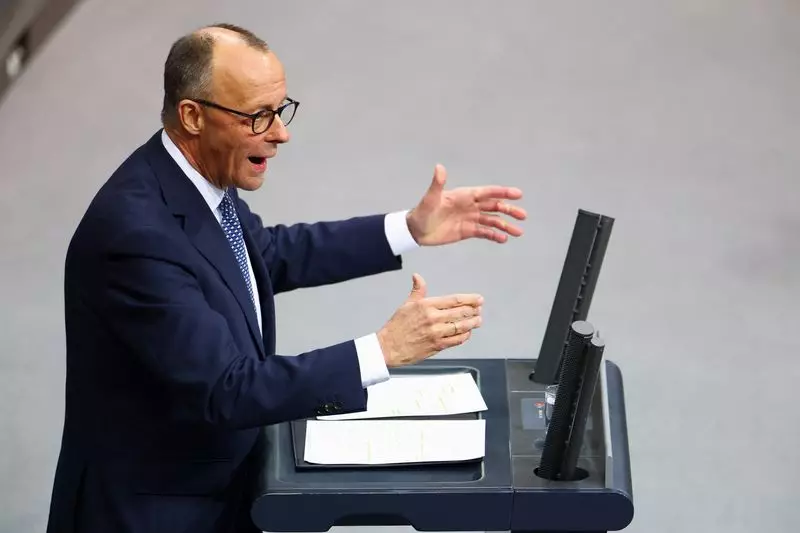Germany stands on the precipice of a critical electoral decision, with elections scheduled for February 23. This significant political event follows the collapse of Chancellor Olaf Scholz’s three-party coalition, which has been widely regarded as one of the least popular administrations in recent German history. As the nation prepares to head to the polls, the urgency of revitalizing Europe’s largest economy hangs heavily in the air, especially as Germany confronts an array of pressing challenges including economic contraction, a surge in far-right politics, and fluctuating attitudes towards migration.
The present electoral landscape has been shaped not only by the internal dynamics of various political parties but also by the external pressures facing the country, including competition from foreign industrial players and ongoing geopolitical crises. With this context, each political party is gearing up to present its vision for Germany’s recovery, stoking fierce competition and staking out distinct ideological territories ahead of what could be a watershed moment in German politics.
On the cusp of unveiling their manifestos, Germany’s political parties are expected to provide insights into their strategies for tackling the economic malaise plaguing the nation. Early leaks point towards a broad focus on pivotal issues such as economic policies, welfare reforms, migration management, and Germany’s role in the ongoing war in Ukraine. With the conservative opposition, led by Friedrich Merz and the Christian Democratic Union (CDU), positioned as the frontrunner, their proposals are likely to revolve around tax reductions and energy price declines aimed at stimulating growth.
Yet, beneath these seemingly appealing economic strategies lies a contentious debate regarding fiscal responsibility, particularly concerning the existing constitutional limits on borrowing—an issue that both Merz and Scholz’s Social Democrats (SPD) are grappling with. Merz’s commitment to adhering to the “debt brake” policy may resonate with voters prioritizing financial prudence; however, critics argue that enforcing such constraints stifles economic progress and investment potential during a time of need.
The SPD’s counter-proposal includes an ambitious plan to establish a €100 billion fund aimed at modernizing infrastructure and encouraging private sector investment. The idea of introducing a “Made in Germany” premium reflects an inclination to bolster domestic manufacturing capabilities but raises questions about its long-term viability in an interconnected global market.
Germany’s role in the geopolitical arena, particularly regarding its support for Ukraine amidst ongoing conflict with Russia, represents another focal point of contention. Under Chancellor Scholz, Germany has significantly bolstered its defense expenditures and emerged as a key military ally for Ukraine. However, tensions emerge as Merz advocates for more aggressive support, including the provision of advanced weaponry such as Taurus missiles. This situation underscores not only policy divergence among parties but also reflects the potential ramifications of military engagement on public opinion and Germany’s relationships with neighboring countries.
Contrastingly, the far-right Alternative for Germany (AfD), having gained traction in the polls, posits exceedingly isolationist perspectives advocating for a cessation of arms shipments and a renewed rapport with Russia. This shift not only illustrates the polarization within the political spectrum but also highlights the dangers of identity politics and the implications they hold for national security and foreign relations.
Migration has undoubtedly emerged as one of the more contentious topics in German politics since the height of the 2015 refugee crisis. The initial warm reception afforded to Syrian refugees has shifted towards a more stringent border policy, with reimposed checks and a vocal push from Merz to regulate asylum claims more rigorously through third-party processing. This strategy resonates with a segment of the populace that harbors apprehensions about immigration, showcasing how the political discourse surrounding migration—once dominated by humanitarian considerations—has metamorphosed into a battleground of national identity and social cohesion.
As the election draws nearer, the chosen pathways of the parties will shape not only the immediate economic landscape but will also leave lasting impressions on Germany’s political fabric. The stark contrasts in their approaches towards economic management, foreign policy, and immigration reform will offer the German electorate a critical choice at a moment when the discontent and aspirations of the populace have reached a boiling point. The decisions made in the upcoming elections will undoubtedly steer the course of Germany in the years to come, solidifying its position within Europe and impacting its role on the global stage.

